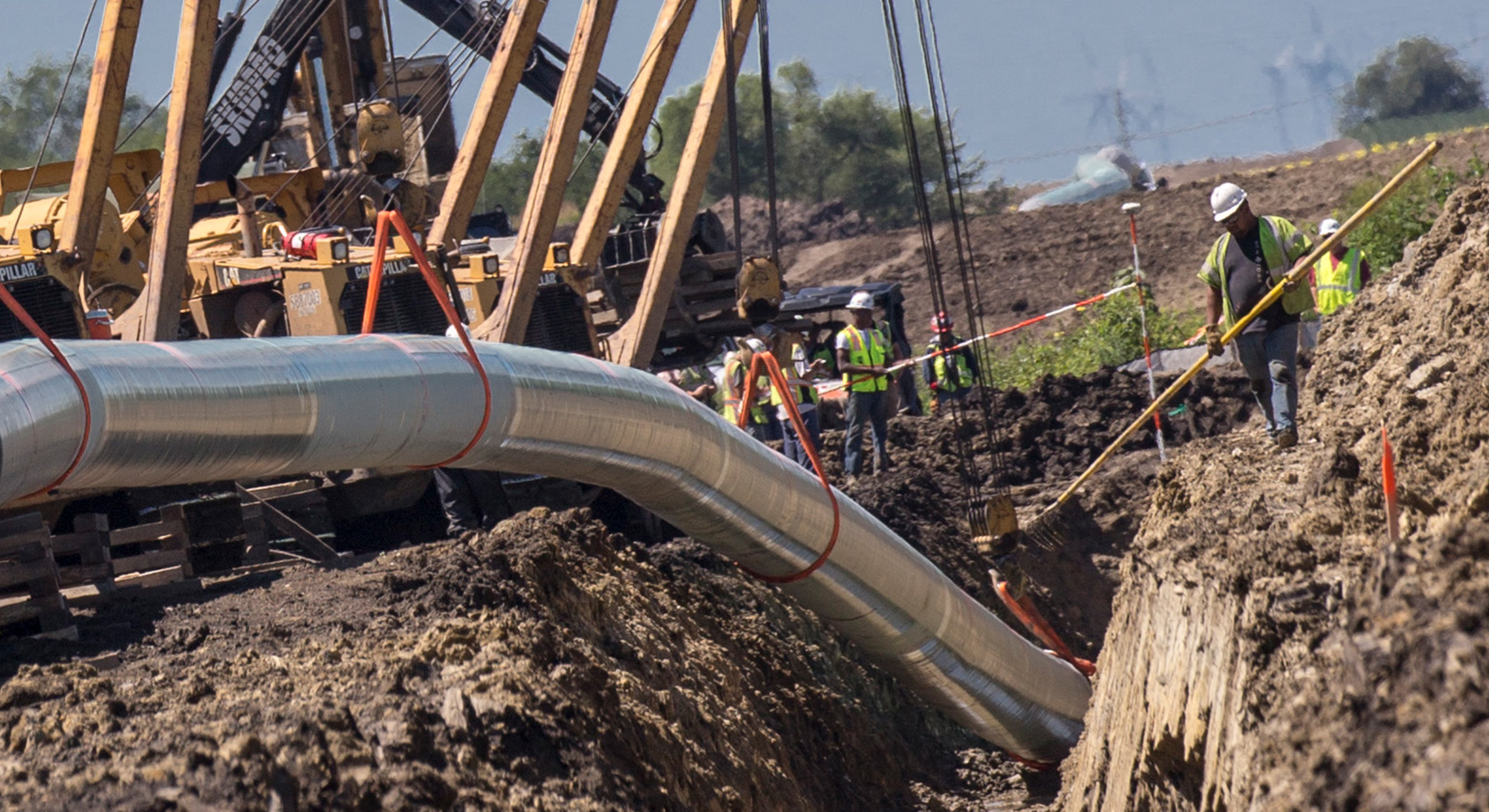Trans Mountain Pipeline Operating at 80% Capacity, Sets to Load 22 Tankers in Vancouver
(Reuters) — Twenty-two oil tankers are scheduled to load this month in Vancouver with crude from the expanded Trans Mountain pipeline, which is running around 80% full with a "little bit" of spot capacity also being used, a Trans Mountain executive said on Wednesday.
Speaking with Reuters six weeks after the C$34.2 billion ($24.94 billion) project started commercial operations, Trans Mountain Corp's chief financial and strategy officer Mark Maki said so far the system is operating as expected and final costs for the expansion are not expected to rise significantly.
The Trans Mountain expansion, which tripled pipeline capacity from Alberta to Canada's Pacific Coast to 890,000 barrels per day (bpd) started commercial operations on May 1 and traders are closely watching flows to gauge demand.
Eighty percent, or 707,000 bpd, of the pipeline's capacity is reserved for long-term contracted shippers, while the remaining 20% is available to spot barrels.
"We're basically running at effectively right around contract level with a little bit of spot on the system," Maki said, adding that volumes were expected to rise towards winter.
Maki said there were 22 tankers scheduled to load at Westridge dock, the pipeline's terminus in the Port of Vancouver, in June.
Traders and shipping sources had been concerned that logistical constraints at the port could limit tanker loadings at Westridge to less than 20 a month.
So far, the marine facility is performing well, Maki added, although the company had to work through some start-up issues on one piece of equipment known as a vapor recovery unit, which removes unwanted vapors from crude.
"The dock facility is working as we'd expected. There are a few things of course you've got to break in and get running right, but we're happy with where we're at," Maki said.
The pipeline is owned by the Canadian government, which has been criticized for the cost of the expansion ballooning to nearly five times its 2017 budget estimate.
Maki said post-construction remediation work is still ongoing but Trans Mountain Corp would have a final cost in place by the end of this year and it would likely be "very, very close" to C$34 billion dollars.
He also said it was unlikely Trans Mountain would need to further increase a C$19 billion loan facility agreed with a syndicate of commercial banks and guaranteed by the Canadian government, unless it was for a transitory purpose like issuing bonds.
"If we do it would probably be transitory and not a particularly large increase," Maki said.
Related News
Related News

- Kinder Morgan Proposes 290-Mile Gas Pipeline Expansion Spanning Three States
- Valero Plans to Shut California Refinery, Takes $1.1 Billion Hit
- Three Killed, Two Injured in Accident at LNG Construction Site in Texas
- Tallgrass to Build New Permian-to-Rockies Pipeline, Targets 2028 Startup with 2.4 Bcf Capacity
- TC Energy Approves $900 Million Northwoods Pipeline Expansion for U.S. Midwest
- U.S. Pipeline Expansion to Add 99 Bcf/d, Mostly for LNG Export, Report Finds
- Enbridge Adds Turboexpanders at Pipeline Sites to Power Data Centers in Canada, Pennsylvania
- Great Basin Gas Expansion Draws Strong Shipper Demand in Northern Nevada
- Cheniere Seeks FERC Approval to Expand Sabine Pass LNG Facility
- Heath Consultants Exits Locate Business to Expand Methane Leak Detection Portfolio





Comments